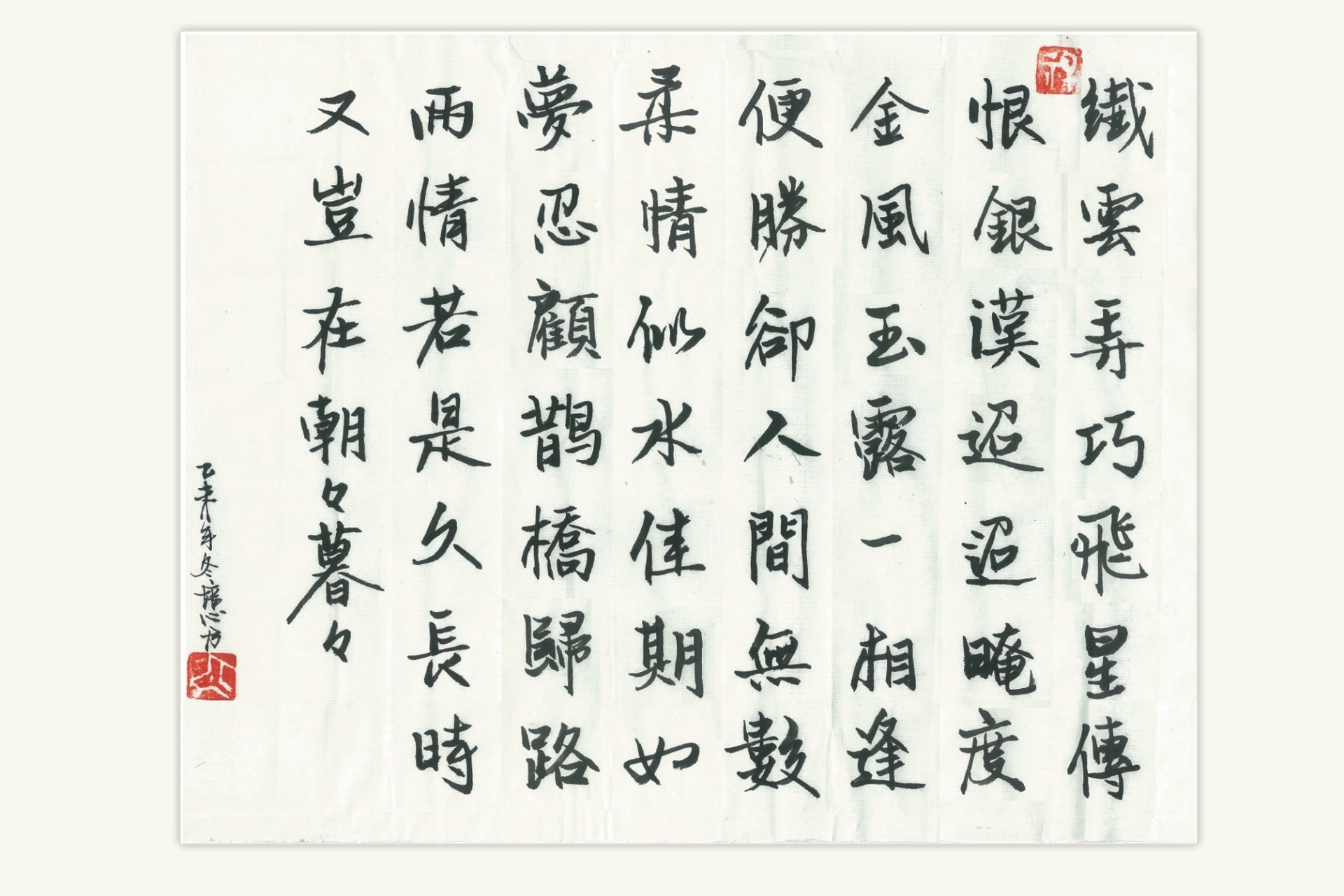
Barbara Blake
Our very own home-grown poet | Issue 15 | 2019


纤云弄巧,飞星传恨,银河迢迢暗渡。
金风玉露一相逢,便胜却人间无数。
柔情似水,佳期如梦,忍顾鹊桥归路。
两情若是长久时,又岂在朝朝暮暮。
As the clouds shift, a flight of stars bears their sorrow
Under cover of darkness they cross the river of silver.
As the wind turns to gold, and the dew to jade, they meet:
A sweeter encounter than that of countless mortals
Soft, yielding, as water flowing: joy, as in a dream.
Ah, but the magpie bridge. Each will return, must return, alone.
If this love is to endure through all eternity
What does it matter that endless day endless night they are apart?
There are tales across the globe of star-crossed lovers. Legend of the Magpie Bridge is a ci, a Chinese song-poem, which tells the story of a mortal called Niu Lang and a celestial being called Zhi Nu who married against the will of the court of Heaven. The Queen of the Western Heavens—the Jade Emperor’s consort—created the Silver River to separate them (and their children). Now, Niu Lang and Zhi Nu have only one brief day each year when they can be together: on the seventh day of the seventh month in the lunar calendar the magpies fly up and form a bridge. This ‘double seven’ day is China’s Valentine’s day (七夕); look up at the night sky and you will see, on either side of the Milky Way, a bright star shining. Niu Lang is the star Altair and Zhi Nu is Vega. In ancient China, love, Heaven and fate were always bound together; no one could disobey the mandate of Heaven.
天命不可违
The poet Qin Guan lived in China more than nine hundred years ago. His ci consists of four lines, each with fourteen characters. It is symmetrical in shape, phrasing and meaning, with a musicality reinforced by its use of rhyme (the final character in each line has an ‘u’ sound—dù, shù, lù, mù—and the same tone—the fourth, or downward, tone). There are internal tonal rhymes as well, on alternate lines (the fourth character in lines 1 and 3; the eighth character in lines 1 and 3; the seventh character in lines 2 and 4). This ci is an example of elegant, subtle, restrained writing, typical of classical Chinese.
The fourth line is famous: if love can be everlasting, it does not matter that the couple are separated. China is a large country, and its history is full of lovers, husbands, wives, friends—separated for years, even a lifetime, by impassable mountains, deserts, rivers and by the will of the powers that be.
© Norton Rose Fulbright LLP 2025